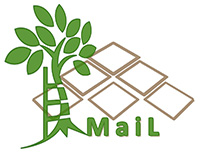Marginal Lands (MLs) could offer suitable carbon sinks by afforestation/reforestation projects without being competitive to food production, conforming to EU/Global policies. The main objective of MAIL is to trigger utilization of MLs as Carbon Sinks by activities related to forestry and agriculture. The project aims to detect and classify mountainous and semi-mountainous Marginal Lands (m/sm MLs), in order to deliver a web-based regional platform with data, methodology and applications which will be valuable for policy makers, stakeholders or researchers.
MAIL will assess MLs’ presence, distribution and suitability in smart and efficient way, considering that marginality differs within European bioclimatic zones. It will detect MLs through multiple layer analysis of existing EU/Global scale datasets (land cover, land use, soil or climatic information, etc.) and will further examine, validate and classify MLs, through field stratified sampling, into Carbon sequestration capacity categories.
In pilot areas MAIL will augment the achieved accuracy by using enhanced spatial and radiometric resolution of full free and open access satellite datasets. Furthermore, it will propose actions that have to be taken in order to increase Carbon sequestration capacity and it will evaluate their feasibility by using a set of criteria for accurate cost estimation. Finally, it will deliver developed methodologies, algorithms and techniques on a web-application platform for on-demand production of thematic maps within Europe.
MAIL consists by a multidisciplinary Consortium of 6 experienced partners, from 4 EU Member States, and gathers the expertise required for identifying, mapping and assessing MLs as a potential Carbon Sinks.
All the R&I activities will be implemented through research personnel secondments, fully founded by Horizon 2020/ MSCA-RISE 2018.

